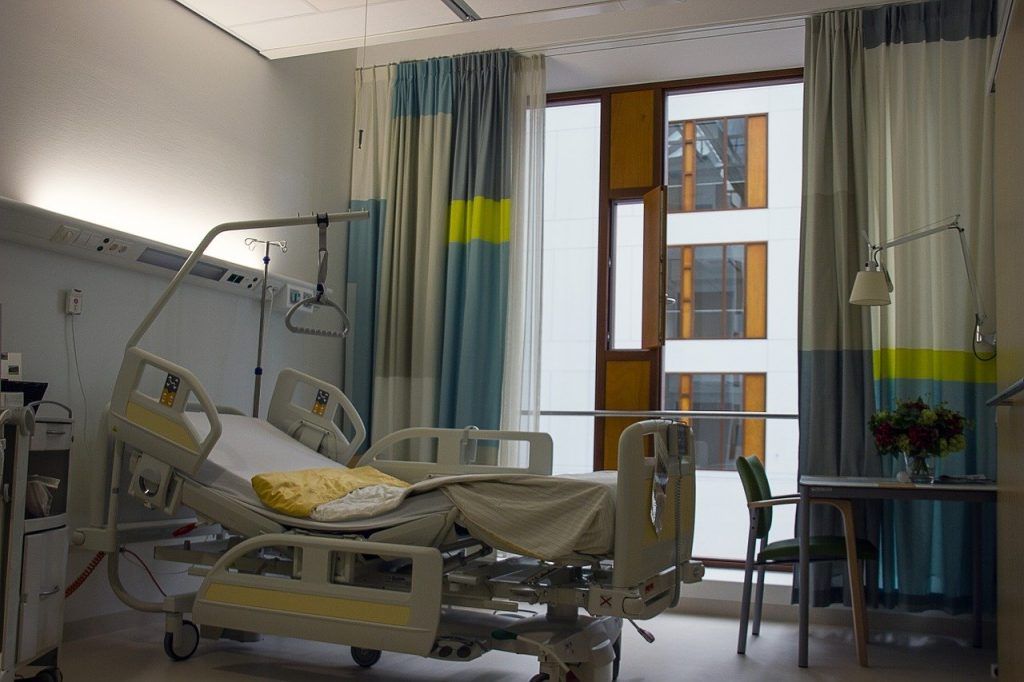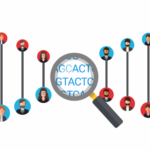Another victim of the coronavirus pandemic: Cancer research
By Jackie Flynn Mogensen | June 24, 2020
 Image of empty hospital bed courtesy of Cor Gaasbeek, Pixabay.
Image of empty hospital bed courtesy of Cor Gaasbeek, Pixabay.
Editor’s note: This story was originally published by Mother Jones. It appears here as part of the Climate Desk collaboration.
Cancer research, like so much else about this cursed year, has been derailed by the coronavirus pandemic. Clinical trials—which are crucial for discovering new treatments—have been shut down, postponed, and disrupted. Other trials have been modified to protect participants and researchers. But experts warn that even for trials that have been moving and will continue to move forward, researchers could miss potentially life-saving data without periodic in-person check ins at hospitals.
Since the pandemic began, the number of people enrolling in all kinds of clinical trials has dropped dramatically—74 percent, by one estimate. In cancer research specifically, more than 200 cancer trials were suspended in March and April due to the pandemic, an analysis by health care data science firm IQVIA found. STAT also reports that the last two weeks of March saw a reduction in the number of enrollments in Phase 2 and 3 cancer trials by as much as 48 percent, though those numbers have since improved to around a 30 percent drop from pre-pandemic enrollments.
While the US Food and Drug Administration issued recommendations in March for how to safely proceed with clinical trials during this public health crisis, the guidelines recognize that due to supply chain disruptions, some patients may not be able to access treatments, that it’s possible some trial subjects would become infected with COVID-19, and that “unavoidable protocol deviations” may arise.
Biostatisticians Chaya Moskowitz and Katherine Panageas, both at Memorial Sloan Kettering Cancer Center in New York City, are now raising alarms about the bigger picture impact on clinical trials, arguing in an opinion piece published late last week in Journal of the American Medical Association (JAMA) Oncology that changes and delays in procedures may threaten the reliability of researchers’ data and, in turn, the possibility of uncovering new therapies.
I called up Moskowitz on Friday to get a breakdown of just how badly the coronavirus could damage cancer research:
Scientists may miss how tumors respond to treatments in the short term. In typical cancer trials, Moskowitz explains, patients who are taking a trial drug or therapy visit doctors’ offices at specific intervals—six weeks, eight weeks, 12 weeks, etcetera—for imaging. Those images, typically from a CT scan or MRI, allow researchers to measure whether a patient’s tumors are growing, shrinking, or staying the same. “If patients cannot come in to get those images,” Moskowitz says, “you don’t know what’s happening to the tumor.”
This is important for early-stage, “single-arm,” studies, which often just include one group of patients that receives the therapy (as compared to randomized controlled trials, the “gold standard” of testing, wherein one group of patients receives a treatment, another group doesn’t, and researchers compare the two). In these “single-arm” studies, doctors look at patients’ tumors before, after, and during treatment. That means regular check-ins matter. For example, a drug may be effective in shrinking a tumor in the short term, but if the patient misses his or her visits, researchers may not see those results.
One key measurement—how long it takes for a tumor to start growing again—is difficult to capture without regular visits. More importantly, as a patient undergoes a new treatment, cancer researchers are often looking to see how long it takes for the tumor to grow. “We realize that the tumor is likely to continue to grow at some point, but we want to push back that time as far as we possibly can,” Moskowitz says. Simply put, effective treatments slow tumor growth. So if part of the experiment is determining when the tumor starts growing again, regular, timely patient visits are critical.
“Suppose the tumor does grow at six weeks, but you aren’t coming in at six weeks to measure it,” Moskowitz explains. “Then you come in at 12 weeks, and now you measure it and you see—aha—the tumor is growing. You’re going to record for that patient that the tumor grew at 12 weeks.” As a result, the drug may appear to be much more effective than it really was.
Researchers may fail to capture “adverse events.” Another loss that comes from missing in-person visits, Moskowitz argues, is that researchers could lose out on tracking “adverse events.” Patients checking in with scientists over the phone or by video chat are probably able to self-report things like nausea and pain. “But there are some things,” she says, “that require monitoring of what’s going on inside their bodies, like liver function, things that require blood work to be done—if they’re not coming in for in-person visits, that information is not being collected.”
One way to make sure research during the pandemic is reliable is to record everything. “If patients didn’t get the drugs, that needs to be recorded. If patients are missing visits, it needs to be recorded,” Moskowitz says. Then, in analysis, researchers should disclose the limitations in their data, and potentially examine their findings during the pandemic separately from the data collected before and after it.
After all, Moskowitz points out, clinical trials are really the only way scientists have to evaluate whether a drug works or not. And participants are contributing their own time—and bodies—to get answers. “We have an ethical and moral obligation to be using people’s research data in a way that allows us to draw meaningful conclusions.”
Together, we make the world safer.
The Bulletin elevates expert voices above the noise. But as an independent nonprofit organization, our operations depend on the support of readers like you. Help us continue to deliver quality journalism that holds leaders accountable. Your support of our work at any level is important. In return, we promise our coverage will be understandable, influential, vigilant, solution-oriented, and fair-minded. Together we can make a difference.
Keywords: COVID-19, Coronavirus, cancer, cancer research, clinical trials, oncology, pandemic
Topics: Analysis, Biosecurity















